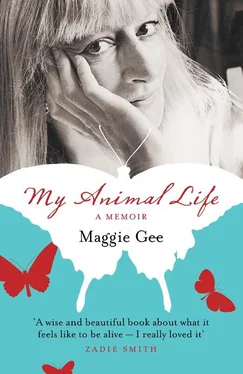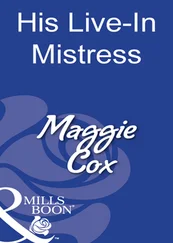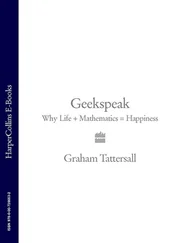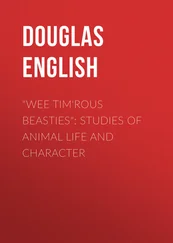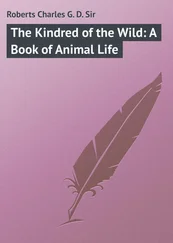But the changing-rooms, the jockery, began to repel me, and in retrospect, I never could have been top flight. I wasn’t quite tall or long-limbed enough. Besides, something important was being forgotten, with all the adrenalin and nervousness, the warming up, the weight-training, and my parents asking eagerly if I had won.
The joy of it. That was what had gone. The thing I had felt on the beach as a toddler, when my stubby little feet and my chubby child legs sped up until they passed the vital line between walking and running, when both feet are off the ground at once. That precious thing, pure movement. Gravity defeated, the lift into flight. The thing that comes to anyone running full-tilt, without pain or pressure, the real joy of the sprint, the all-subsuming sense that you and your body are one, and the unity is weightless, sheer speed, pure flow. You are not lifting or moving anything; nothing is moving or lifting you. You are the movement. You are in flight. Pure animal alchemised into spirit.
One other time I felt the same joy, something atavistic that pre-dates modern humans, their vegetable state briefly interrupted by panting, sweating sessions down the gym. Now activity is seen as a self-limiting episode, whereas, once, surely, life was motion.
When John and I were teenagers, and my little brother was ten years younger, our parents took us on camping trips so we could afford to go abroad. We didn’t have a car, which might have stymied some people, but we loaded our camping gear into prams and push-chairs, which somehow or other we heaved on to trains (consider the terror at European stations, as the huge foreign expresses roared in beside the platform and we had to get two prams and a pushchair on board, from the hoods of which the round bottoms of duffel-bags looked out, the small brass studs like a pair of piggy eyes, the body of the prams full of tents, billy-cans, cooking-stoves, wind-breaks, sleeping-bags, provisions. Imagine my father, marshalling his troops! Three prams, his three children, a friend each for John and me, his wife, his precious camera-bag, his briefcase, rucksacks for my father and the two elder boys. Three vehicles, five children, a pile of bags and baggages. Looking back on it all, I salute you, Dad. I forgive the bawlings-out as we panicked on to trains.)
One fine July day we had gone for a day-trip up high in the Swiss mountains on a crawling funicular train, with slatted wooden seats. Despite my fear, it did not hesitate, groan, and plummet with terrible speed back down the mountain. When we got to the top, Dad set off boldly in the opposite direction from all the other passengers. This stratagem was not always successful, but this time it brought us to a paradisal place, ringed by snow-topped peaks but curiously temperate, a lightly-wooded, green-turfed valley with a river and a grassy path meandering beside it, little patches of silver river-sand and stones.
My friend Janet and I were perhaps thirteen. We were just beginning to be adolescents, but as childhood friends, we could be children together, which is one definition of happiness. Sometimes Nick and I are children together. Janet was one of the non-bullyers at junior school, one of the people who have shown me that hope is worthwhile, for some people’s hearts are immune to peer pressure, some children have been treated with enough kindness to be kind to others when they’re very young. Janet had decided to be my friend, and she even withstood my astonished lack of trust: ‘Are you REALLY my friend? Promise?’ How many times did I interrogate her? ‘I am your friend. Why do you keep asking?’ And my answer, from the voice of pure misery in my chest — ‘Because no one likes me, since my parents left Bromsgrove and they put me up a class, no one’s ever liked me’ — was stilled in the end. Janet liked me. And so did Anne Simmers. And so did Linda Tucker. Janet also loved running, as I did.
My parents let the children off the leash, that day, for a few hours. Freedom! We were walking fast, then we started to run. Janet and I were running, easily. We ran by the mountain river in the clear, snow-cooled early afternoon sunlight, passing young silver birches and slender conifers, down the easy path through tasselled grasses, with the river on the left and my family still way behind us. And something happened; we were not going to stop, we were on our second wind, and our third, no longer counting, we had turned into the horses we used to dream of, we were animals, we could run for ever, had slipped back in history, and before history, we were loping, now, across the sun-bright savannah. We had no limit. We became movement. We ran for hours beside the river, through the sunlit country, past rocks and trees.
Of course I wore a watch, and the hours slipped away, and by the time we got back, my father was cross because my brother and his friend were late; but the memory has stayed with me, unchanging, complete, an image of cloudless physical life.
As we age, such moments come less often. At its worst, the body becomes something to forget or to carry, something best ignored, something to transcend, a net of competing pain-signals.
But my body for the most part is still my friend. Bodies must be our friends, or they will turn against us. When I neglect my body, it reminds me, sharply. When I overwork: when I forget to walk.
I see cyber-life, the virtual, as the enemy. It keeps this generation of young in dark rooms, leaching strength from their arms and suppleness from their shoulders, poking their heads forwards like unshelled tortoises. It sucks out their souls through their eye-sockets. Poor young people, kept from the light.
Here at St Cuthman’s, Neville said, ‘God did not make you for the dark of death, but to live.’
To live. In our bodies, in the light, may we live.
In Vladimir Nabokov’s great novel Ada , the hero, Van Veen, ages from a child to an old man, but Nabokov teasingly tells us that in his eighties Van still dances on his hands — ‘I can do anything, I can tango and tap-dance on my fantastic hands’ — delaying and delaying the final sigh of information that this is ‘only in a recurrent dream’.
True, the mind can hold what the body has given. I dream of running, fast and free, an easy circuit through sand and silver birches, with the amazed (but delusory) realisation that I am still running as fast as ever.
But a dream goes cold on waking. I run, for real, on London roads, not far, but enjoying it, listening to my feet, counting magpies and urban blossom, ignoring aches and car-fumes. I hope to go on running till I die. I hope to go on having sex till I die. Not only in dreams, but in the warmth of the flesh. I’m thinking about orgasm, now. What a beautiful expression ‘coming’ is. I’m coming, moving, here in the moment, here in the body, running wild.
not in the way they expected
Here is one of my questions: in a single lifetime, do you ever, truly, change class?
In one sense, that of appearances, class changes in a flash, leaping slick as a fish over the weir in a mere two decades. Send a child to public school and Oxbridge, or Harvard, or the Sorbonne, and even if the grandparents’ families have been sons and daughters of the soil for thirty generations, no one will be any the wiser. Will they?
No one except the child . Each child instinctively knows where they come from, what their earliest memories are, which smells, which comforts, what their uncles and aunts were like, how they speak, how they eat. When they hear those voices again, wherever they are, however many years later, they will prick up their ears; hail, friend. (Though some of course are ashamed.)
So what class am I? I’m a novelist — middle-class profession — and went to Oxford — middle-class education — and am married to a man who went to public school and Oxford, and knows the names of his family back to the seventeenth century — middle-class man. I like expensive scent, Issey Miyake or Chanel № 5 or 19, or Jo Malone, and good wine; I have flown to Australia, over the curve of the earth where suddenly St Petersburg glittered below on the night like a hand-spread of stars, and worked in Berlin and Vienna, and trodden the stones of the Roman road to Carthage, at Leptis Magna, Libya. I saw lions in the pink early morning in Uganda; I have wandered through the Prado, and been moved to tears by the tender arches and vaults of a Gaudí building in Barcelona. Middle-class pleasures, middle-class tears; middle-class, I must be. Yet at the deepest level, am I?
Читать дальше
